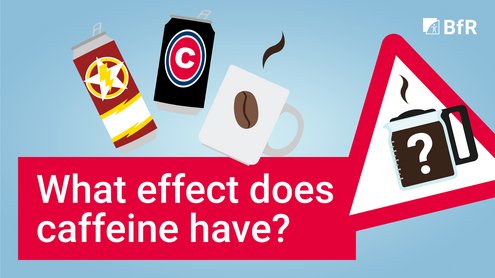What effect does caffeine have?
Coffee is the most popular drink among Germans, surpassing even beer and water. Other caffeinated beverages are also in demand: inn addition to tea and cola, products such as energy drinks are en vogue among young people. It is physiologically undisputed that caffeine has a stimulating effect on the cardiovascular and central nervous systems. The ingestion of caffeine causes a temporary increase in alertness and concentration. But when does the consumption of caffeine lead to adverse effects and who is particularly at risk?
When consumed in large amounts, caffeine can cause nervousness and excitability, insomnia, sweating and heart palpitations. Excessive caffeine consumption over a long period of time may even cause cardiovascular problems such as elevated blood pressure. Caffeine-sensitive individuals tolerate less than other people. Children, pregnant women, and nursing mothers should be particularly cautious about caffeine or ideally avoid products with higher caffeine levels.
